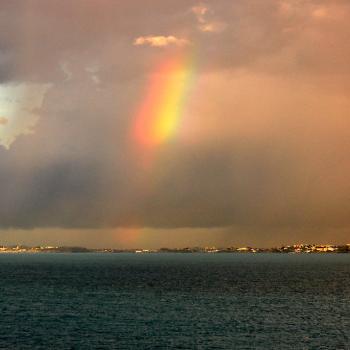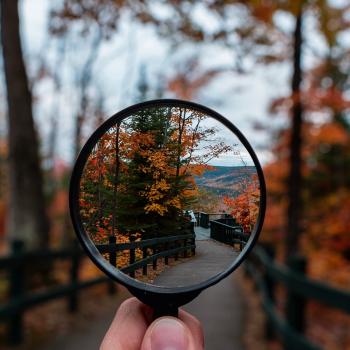
Creative Commons 2.0 license
When I walk into Sunday service, I am recognized. I say good morning and share smiles with the lovely individuals who help in the daycare, pause to greet our interim minister. I wave across the room to the students I teach every few Sundays, share a few words with the fellow UUs I’ve attended classes with, seen at social nights, read books with in study circles. I really love these people. I’ve known some of them for more than two years now, and no one has ever been anything but kind and accepting towards me and my children, and I couldn’t be more thankful.
Inspired by Peter Dybing’s latest post about coming into a Unitarian Universalist service as a Pagan, I want to share my experience of coming into a service as a polytheist. For me, the almost ritualistic trappings of the religion of my youth were never off-putting. In fact, I welcomed the familiarity, devoid of the also-familiar feelings of doubt, shame, and guilt. The act of opening a hymnal, singing along with the traditional four-part harmonies – these so intimately recalled one of the places I first felt spirituality, this magic of communal song. To be able to participate in that and still be true to my Gods, to not acknowledge or acquiesce to the supposed supremacy of the Christian God, was such a powerful experience. It has helped to heal wounds from my religious upbringing that I wasn’t even aware I was still struggling with.
In general, I have also very much enjoyed the sermons; my UU congregation tends to focus on social justice topics, calls to action, calls to introspection. I appreciate these things greatly, questions that anyone of any spiritual stripe would benefit from contemplating. To be honest, much of my writing is sparked by these invitations to think; and I believe I’m a better person for it.
Most of my struggles with UU services stem from the tendency towards a monist language and perception of the divine. As a polytheist, who believes in the separate and distinct existence of many individual Gods and spirits, it becomes difficult to translate the many references to ‘the sacred source’ or ‘the divine’. It is intended to be inclusive language, and I very much appreciate that intention, but it can be jarring to sit and think “okay, which deity should I be addressing for this?”. Not that I have a good solution for this; obviously I don’t expect my UU minister to stand before the congregation and address a prayer to Freyja! But it is an issue for me, and one that I think is worth looking at for polytheist UUs, and worth dialoging with our ministers and worship leaders about.
Finally, I’d like to talk about the makeup of my UU congregation. We seem to be a largely atheist and humanist congregation, with the occasional very progressive Christian or self-described “spiritual, but not religious” person. Talking about my belief in literal Gods and spirits, my daily devotionals and trancework, can be very off-putting to a large part of my congregation. I love talking and comparing with all sorts of spiritual paths. and I am thankful to avoid the hardcore “you’re worshipping demons” mentality by discussing with fellow UUs, but sometimes a stunned silence and simple “oh” can be just as effective at shutting down conversation.
Overall, my experience in my UU congregation has been amazing, wonderful, all that I could ask for in a not exclusively Pagan spiritual gathering. I will continue attending and volunteering at my congregation for as long as I have the time and energy. The blending of traditional Christian ritual and worship styles with a much more inclusive, open-minded mentality has been a great healing balm for my past. But there are always issues of inclusivity to be addressed and adjusted, and I feel that reaching out to include polytheist perspectives – or even those who view the divine as more literal than metaphor – would be a great step forward for the future.

















